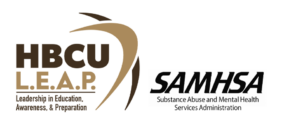- Evaluate client's mental health and physical wellness
- Analyze addictions and behavioral problems
- Determine how open a client is to different treatment interventions
- Develop treatment plans and goals
- Help clients develop necessary skills to overcome their addictive behaviors
- Identify habits or behaviors that may interfere with recovery
- A Bachelor’s degree earned at an accredited college or university. Although no specific major is required, students usually complete undergraduate work in biology, chemistry, physics, math, and English.
- Complete medical school
Note* After graduation from medical school, a graduate must pursue a state license to practice medicine (American Psychiatric Association, 2019)
Addiction Psychiatrists must:
- Pass a written examination for a state license to practice medicine
- Complete four years of psychiatry residency
- After completing residency training, most psychiatrists take a voluntary written and oral examination given by the American Board of Psychiatry and Neurology to become a "board certified" psychiatrist.
- Addiction psychiatrists complete additional specialized training after their four years of general psychiatry training.
- The American Board of Psychiatry and Neurology, Inc. offers certification in the subspecialty of Addiction Psychiatry
Note* You can find more information about Addiction Psychiatry certification from the American Board of Psychiatry and Neurology here: https://www.abpn.com/
The median salary for psychiatrists as of March 2018 is $220,380
American Academy of Addiction Psychiatry
American Board of Psychiatry and Neurology
American Psychiatric Association. (2019). Psychiatric training. Retrieved from https://www.psychiatry.org/patients-families/what-is-psychiatry
American Academy of Addiction Psychiatry. (2019). About addiction psychiatry. Retrieved from https://www.aaap.org/clinicians/education-training/about-addiction-psychiatry/
Chron. (2019). Job description for an addiction psychologist. Retrieved from https://work.chron.com/job-description-addiction-psychologist-19144.html
Bureau of Labor Statistics, U.S. Department of Labor, Occupational Outlook Handbook. (2019). Retrieved from https://www.bls.gov/oes/current/oes291066.htm#(5)



